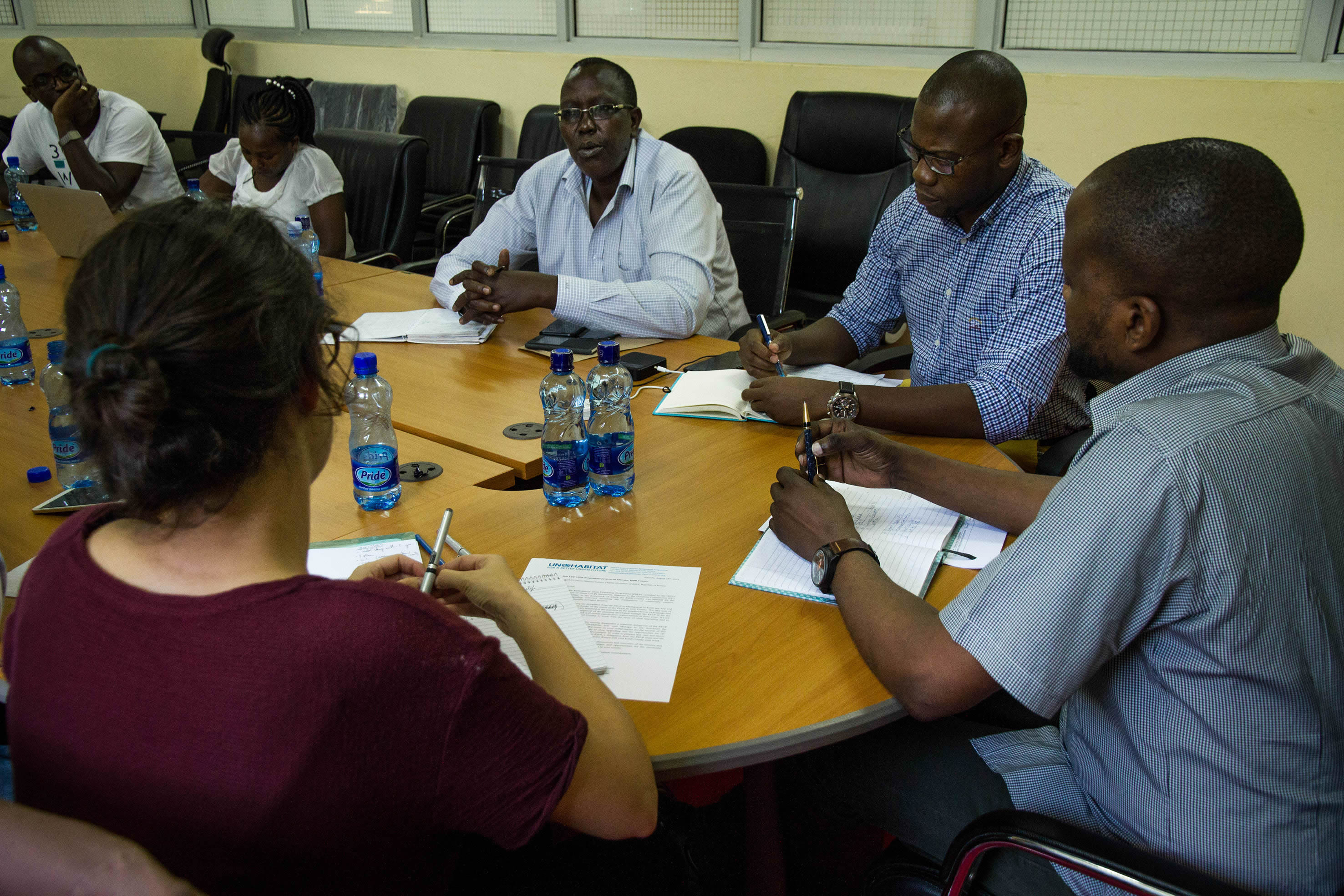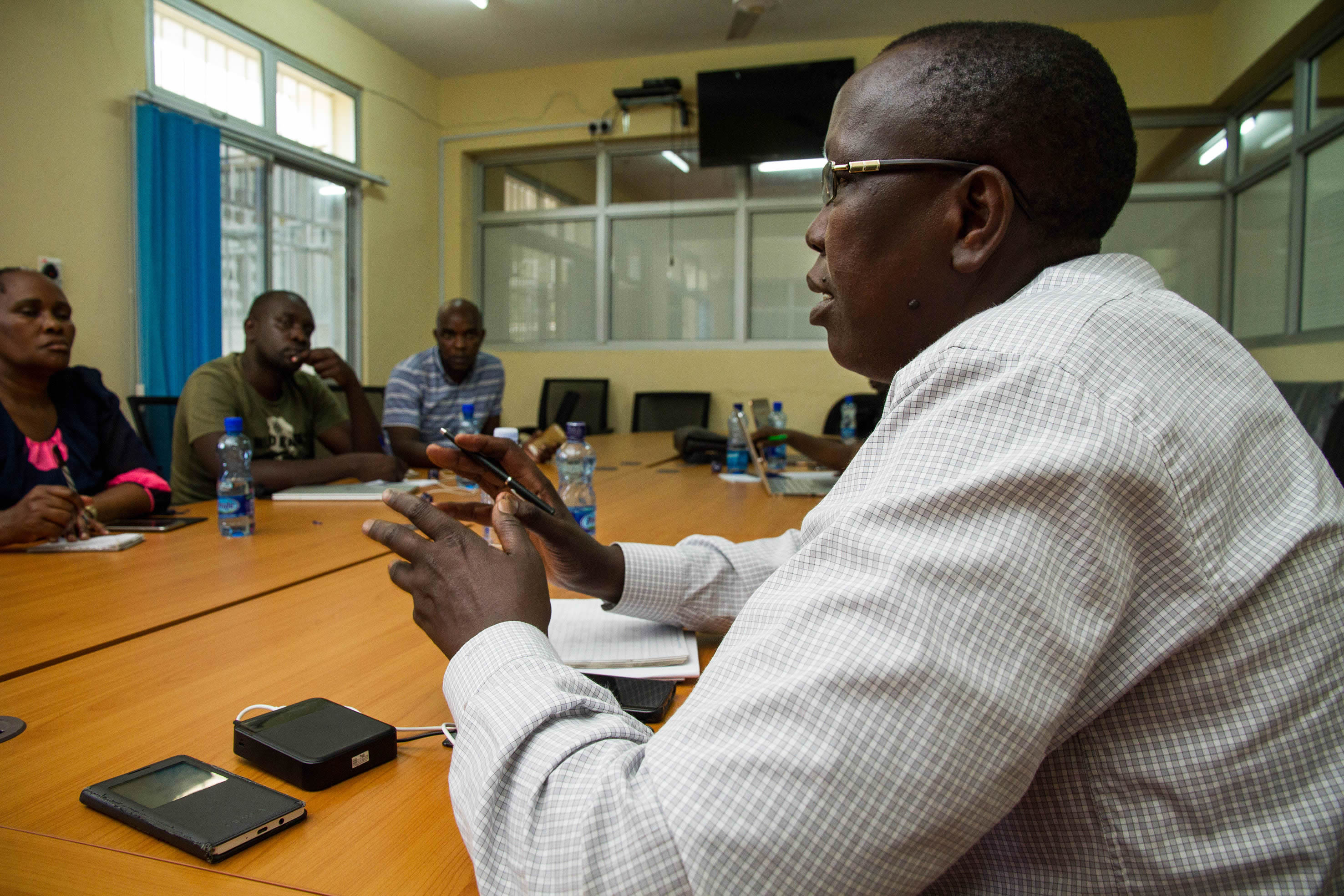"Progress only works with the locals on board."
Interview with Isaac Mungania, Ministry of Transport, Infrastructure, Housing and Urban Development, State Department of Housing and Urban Development in Kenya
PSUP: Mr. Mungania, you are coordinating the PSUP project in Mtwapa, Kilifi County on behalf of the Kenyan Government. What is this project about?
Isaac Mungania: One thing above all: How can we improve the quality of life of the people in and around Mtwapa? The town is located north of Mombasa, Kenya's second largest metropolis. People have migrated from the countryside and settled there, not least in the hope of finding jobs. More than 80 per cent of Mtwapa's infrastructure is informal today. These are suburban slums that grow without any planning and in many cases do not even have basic services: clean drinking water and sanitary facilities, sewage systems or waste disposal, adequate roads or safe housing. This was the case in Majengo and Mzambarauni. Both slum communities are therefore part of our pilot project. Two communities are to be created from an arbitrary settlement structure according to planning specifications. My team forms the interface between the PSUP team of UN-Habitat, the government in Nairobi and the responsible ministry in the county government.
PSUP: Why did you choose Majengo and Mzambarauni?
Isaac Mungania: We first visited at a whole series of villages around Mtwapa, analysed their infrastructure and talked to the respective council of village elders and village representatives. This is part of the City Wide Strategy. From eleven such slum communities, these two communities proved to be optimal in the end. Both villages were among the poorest and are located almost exclusively on public land. Regularisation of land tenure and structural changes, such as the construction of roads, sewage systems or a drinking water supply, are much easier to implement there than on private land.
PSUP: Does this mean that the Kenyan Government plays an essential role in this PSUP-project?
Isaac Mungania: Yes, definitely. Slum upgrading only works with the government. The government has to be involved at both national and county level and at every stage of the project. After all, the land on which the villages are built is governmental land. If we want to secure land tenure, widen roads, lay sewers or pipelines for clean drinking water, the government must have its say because it enacts the laws. At the same time, it should also assume responsibility in the interests of its citizens and participate financially and structurally.
PSUP: And what about the inhabitants of the villages?
Isaac Mungania: Progress only works if we get the local people on board. We first looked into both communities to see how they are organised and what their needs are. In the planning discussions, it was important to us that the communities themselves first find out where the problems lie: for example, that in heavy rain the narrow streets flood and the water flushes the garbage even into the houses, or that due to unregulated ownership, each individual risks losing his or her home if the government ever claims the land. In a second step, we work with them to find solutions.

PSUP: Has this worked so far?
Isaac Mungania: With the help of PSUP, both municipalities now operate water taps at favourable prices within the framework of so-called community-managed funds. The money goes to the community. There is also an elected community council and community centres that use the villages for their purposes. For example for their own meetings or weekly meetings of savings groups. They rent rooms for private events in order to acquire a small income. In addition, the communities now started to take care of their waste disposal on their own initiative. In Mzambarauni this already works quite well.
PSUP: And what are the challenges?
Isaac Mungania: Not every member of the community shows initiative. Many people have high expectations. It has to be understood that way. We are talking about poverty here. That goes hand in hand with a lack of education. Some lack the vision for the common cause. Convincing these people is difficult. Participate instead of waiting until someone comes and improves the village. Something has to move in people’s minds first. The communities are learning how to manage themselves and take responsibility. After all, they should soon be able to do this without us and be a role model for other communities in and around Mtwapa.


